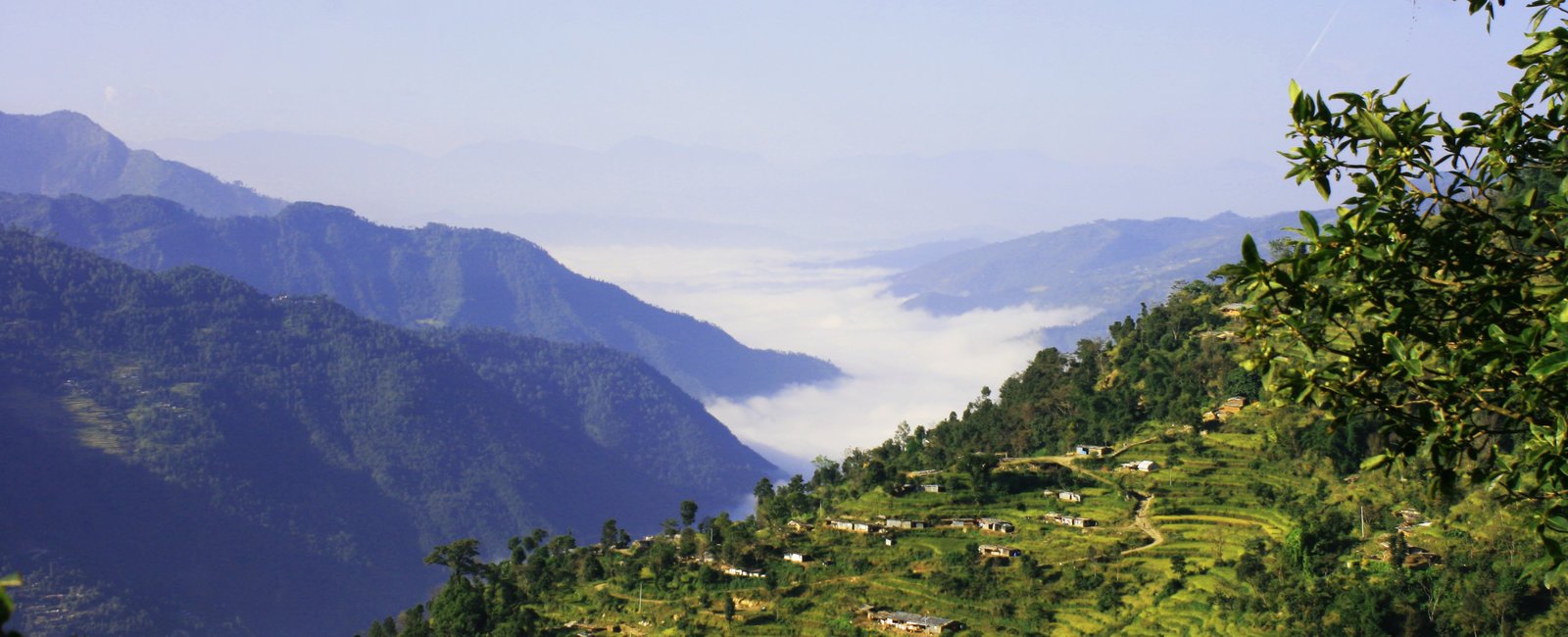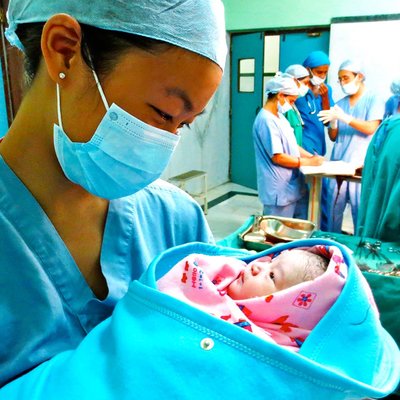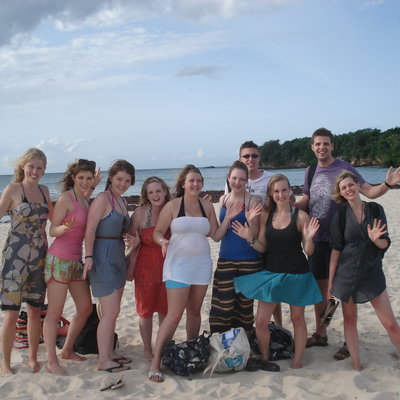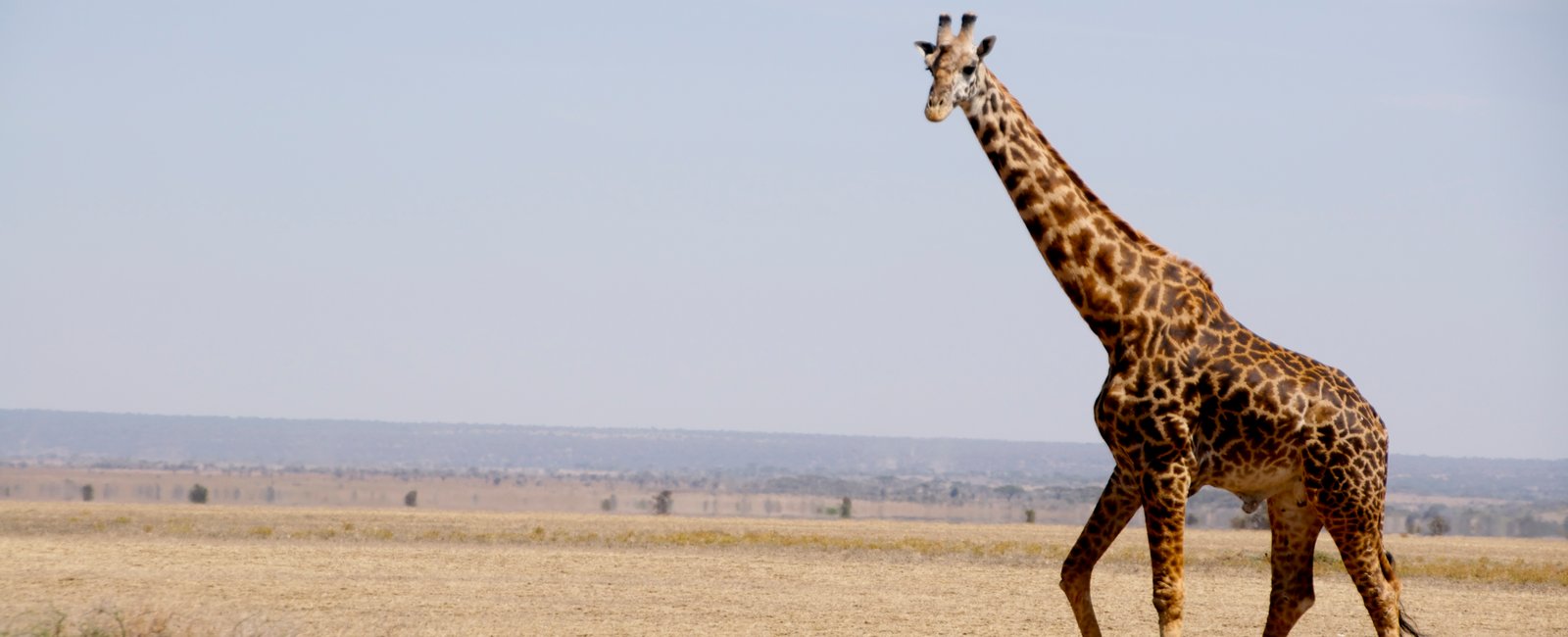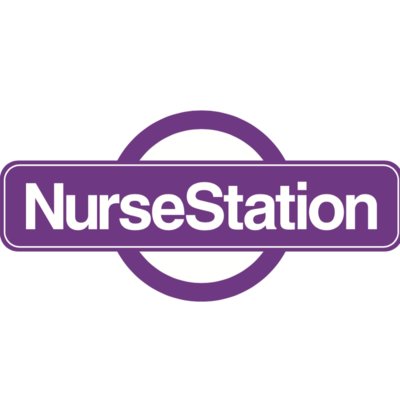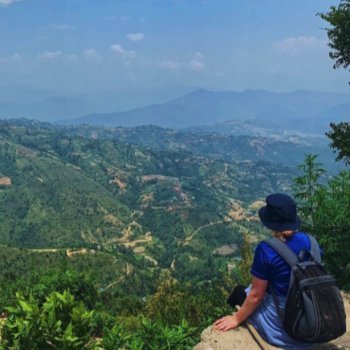 Kristal travelled to Kathmandu for her nursing elective back in 2019. We caught up with her to see how the placement helped shift her perspective.
Kristal travelled to Kathmandu for her nursing elective back in 2019. We caught up with her to see how the placement helped shift her perspective.
So, what made you want to study nursing?
I was a care assistant for about five years. I liked it a lot more than I thought I would, so studying nursing felt like the next step. That said, if you’d asked me ten years ago if I would now be a qualified nurse or working in healthcare I would have laughed.
I just really liked looking after people, helping them to maintain their independence and dignity, so I felt like I’d found my calling. I’ve not looked back since.
What was it that made you want to go overseas on an experience like this?
When I was looking at various universities, one of my questions to them was ‘Do you offer overseas placements to developing countries?' I wasn’t interested in going to Australia, Finland etc. I was keen to visit a low-resource healthcare setting in a country with a culture very different to what I was used to at home. Plus I’ve always had an interest in humanitarian work, so I thought this would offer me some good experience to get on that trajectory.
Why Work the World? Can you remember how you heard about us?
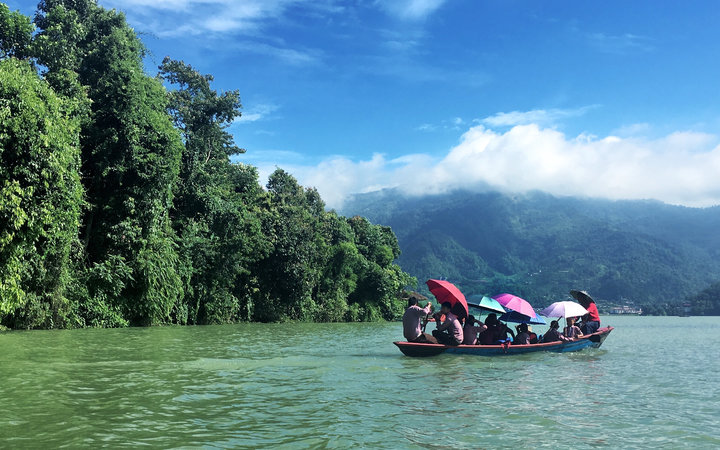
My friend went to Manchester Met University and attended one of your African programmes some years ago. I remember seeing all her photos on Facebook, so I spoke to her about it. I remember my uni presented us with a couple of providers we could choose to go with, but I remembered her talking about Work the World, and she said she was pleased with the organisation.
I struggled to pick between your programmes in Africa and Nepal. But I figured loads of people go to Africa, and I wanted to experience something different, so I chose Nepal. Plus, my mum went trekking to Nepal in her twenties and is in love with this country that sold it.
I also loved the fact that Work the World had its own houses. I knew going to a country like Nepal would be challenging, so I figured this would be the perfect option to ‘test the water’. It allowed me to have some of the comforts of home but also enough independence to experience hospital life and all the challenges that would come with it.
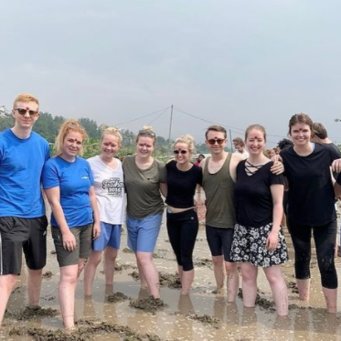 Was there anything that worried you about going overseas for your placement?
Was there anything that worried you about going overseas for your placement?
Not at all. I was planning on going on my own, and to be honest, I was only worried I’d be bored on the plane.
While I was on placement in the UK, I was speaking to one of the girls on the ward about going to Nepal. She mentioned she knew people who were thinking of going to Nepal with Work the World too, so she gave me their details. I messaged them on a whim. I’d never met them before but I’d nothing to lose. We all decided we wanted to go, we had Facetime to book our flights together, and the first time I met them face to face was at the airport.
Can you remember what your first 24 hours were like once you landed in Kathmandu?
We were so tired when we arrived at the airport, and it was relieving to spot the Work the World team once we got through customs.
The team took us straight to the Work the World house.
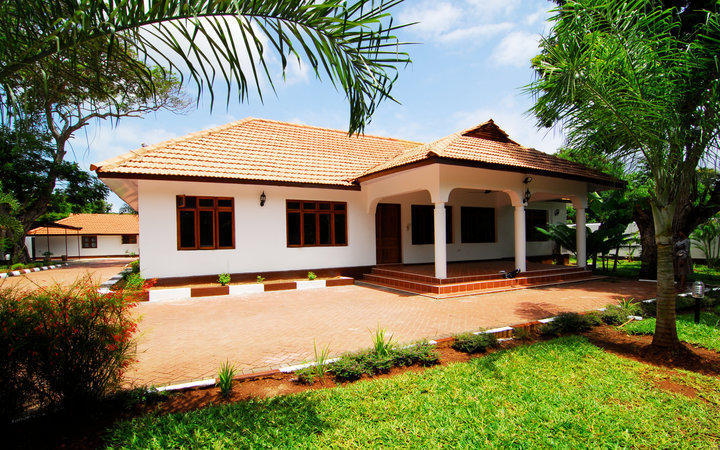
We didn’t meet our housemates at that point, because they were on their way back from Chitwan Safari Park — they’d been there that weekend. But once they came back we got talking straight away. They shared their experiences with us and told us we were going to have an amazing time.
We were jet-lagged and things were a bit of a blur. Needless to say, we had a very early night that night.
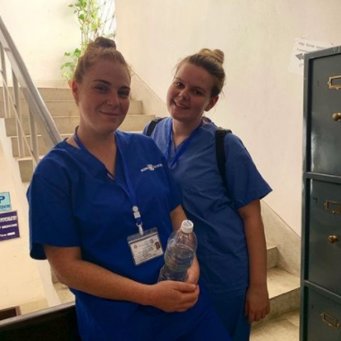 And what about your hospital placement — what departments did you spend your time in?
And what about your hospital placement — what departments did you spend your time in?
I was due to spend a week in the Mental Health Unit but I ended up only doing two days.
The thing is, mental health is still stigmatised in Nepal. And although I understood the different Nepali cultures and beliefs, it was vastly different to home — both in terms of the patients who were in the mental health ward and the methods used to treat them.
I didn’t judge, as that wasn’t what I was there to do but I made the decision that I didn’t want to spend any more time there. I asked the Work the World team to arrange for me to move to the emergency department, which they did.
What was the day-to-day like in the hospital?
Warm! But in ED I found the perfect cool spot under a fan in the resuscitation area.
But more seriously every day was different. And I’ll be honest — it was challenging at times. Patient centred-care wasn’t practised in Nepal, and that was a huge difference when comparing it to things back home.
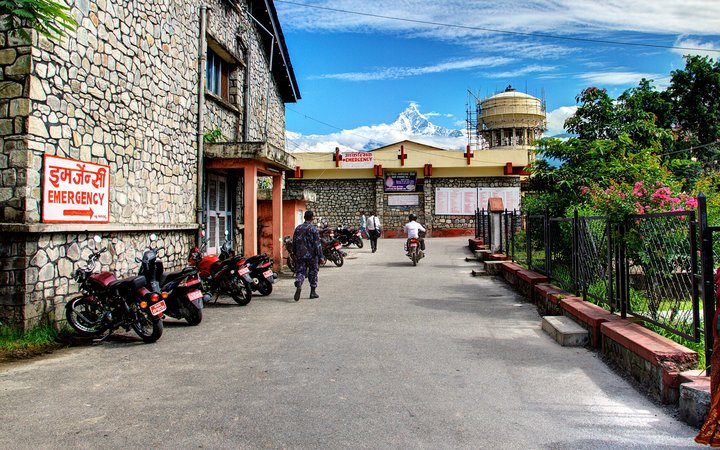
They didn’t give a patient a bed until they’d paid for that bed. Their healthcare system was so different from the NHS, and I understood that. But when you see a sick patient in need of care and the money side of things was the priority, that was overwhelming.
On top of that, the hospitals were incredibly busy, packed with patients and relatives. It was not uncommon to see a bed with up to four patients. One bed had a cancer patient and a patient with TB lying side by side — not something you’d ever see in the UK.
Did you face any challenging situations while you were there?
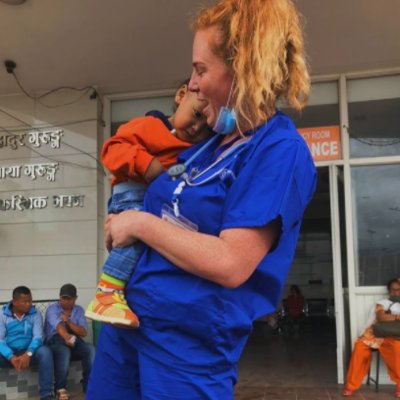 I saw plenty of challenging cases while I was there. Where families could not afford to pay for nurses, the family themselves would help. I saw some family members bagging a patient as they didn’t have the money to pay the trained professionals to do it.
I saw plenty of challenging cases while I was there. Where families could not afford to pay for nurses, the family themselves would help. I saw some family members bagging a patient as they didn’t have the money to pay the trained professionals to do it.
Things like this made me so appreciative of the NHS.
Did you see any stand-out cases while you were there?
There were many cases but one that sticks out was a teenage boy who stood there crying, watching his grandad who needed CPR.
The doctor in charge was next to him with a small group of Nepali medical students. The doctor was letting the students take turns doing compressions on the patients. They would stop the CPR to allow the next student to take over. It was shocking to see and I simply stood there thinking the patient had no chance.
Do you think experiences like that changed your approach to the rest of your nursing career?
 Before going to Nepal I didn’t know how much of a patient advocate I could be.
Before going to Nepal I didn’t know how much of a patient advocate I could be.
I’ve learned how important dignity and the promotion of patient independence is. This wasn’t always possible in Nepal, and they had their reasons for that. But today it’s at the heart of everything I do for my patients. It is not something I even have to think about, it feels so natural to me — maintaining dignity for a patient.
Have you now graduated? What’s your current role?
I am a qualified staff nurse in an emergency department.
What are your plans for the future?
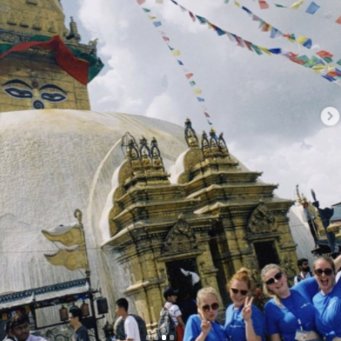 I plan to go travelling in January 2022 for about 6 months to South-East Asia.
I plan to go travelling in January 2022 for about 6 months to South-East Asia.
As I say, I’ve always had an interest in humanitarian work. I am interested in Nursing Without Borders, or possibly working with the Army Reserves as they do missionary work. I fully realise that getting into humanitarian work is hard — often it’s more about the people you know than your experience. But I’m willing to try. There are courses you can do which certainly help but they are not cheap.
A friend of mine also runs a charity on the Serbian border so that could be my way in.
And lastly, do you have any words of encouragement for students thinking about undertaking an overseas placement?
Don’t think about it — just do it.
I had the best time and I met some amazing people when I was on my placement. Doctors, nurses, physios... I made friends for life.
When we got back from Nepal, a group of us met up in Manchester for a night out. We all still chat and as soon as lockdown restrictions are lifted we’re planning another meet-up.
I would also love to go back to Nepal. A few of the girls and I have talked about going back and taking the time to hike Annapurna, but I’d need to train for that! Nepal is a stunning country with incredible people, I would go back in a heartbeat.

Next Steps
Where to?
Want to experience a life-changing overseas placement like Kristal's? Choose a destination to get started.
Want to experience a life-changing overseas placement like Kristal's? Choose a destination to get started.
